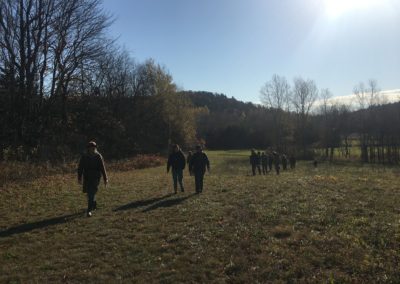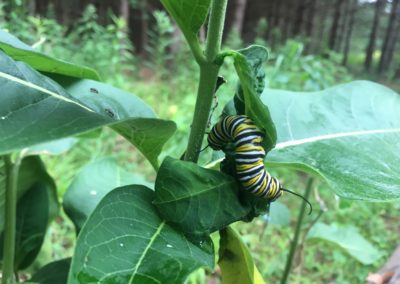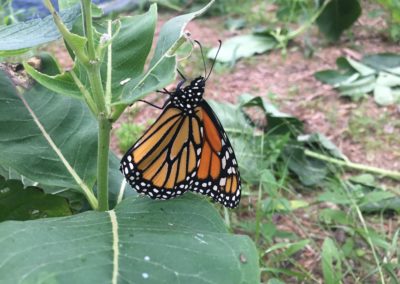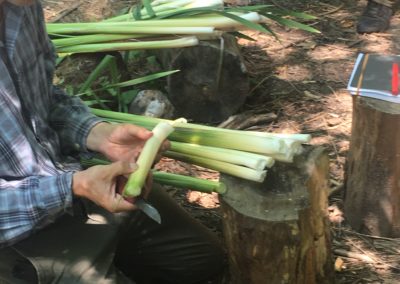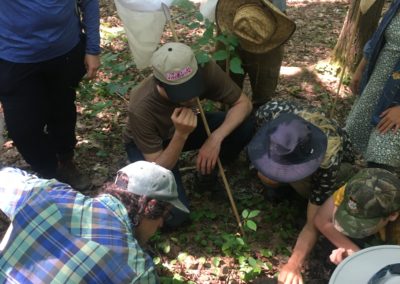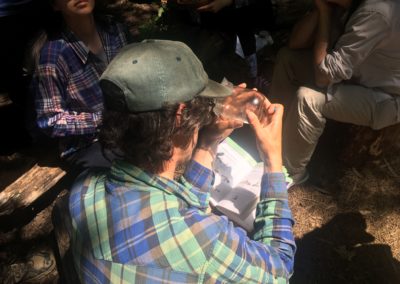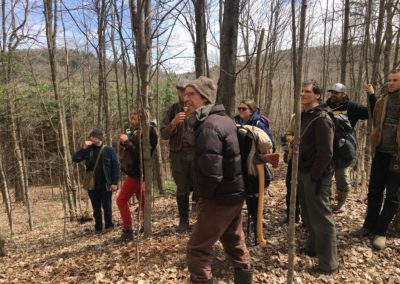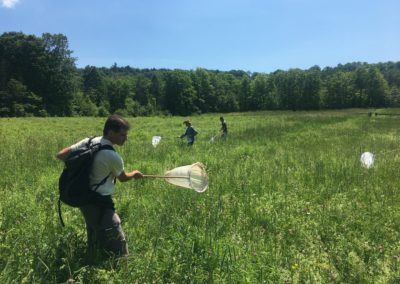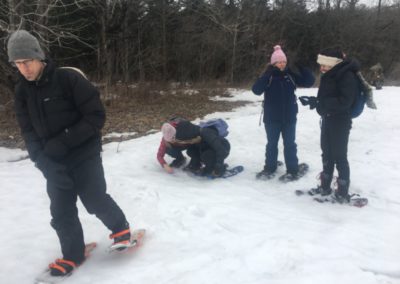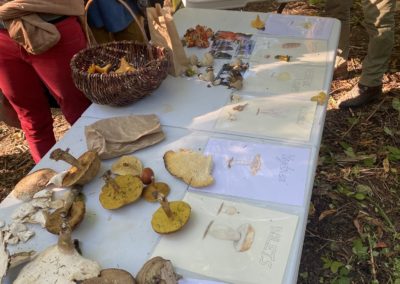This program will not be running for 2025-2026.
Imagine walking through your landscape and having a deep familiarity with all the species you encounter...
…You feel a kinship with all of them and can understand their unique ecology and the stories of their lives present. This program is designed to familiarize participants, in a generalist way, to all the local species we may encounter while walking through our local woods. An impressive task, as well as a deeply important one for cultivating ecologically literate stewards of the land.
This is a monthly program that gathers at the Morgan Arboretum in Sainte-Anne-de-Bellevue, in the West Island. Each outing has a focused theme that we will dive into for the day. There will no doubt be themes that cross over, and other local natural phenomena that will be explored. We will use didactic teaching as well as other teaching styles to engage our senses, and deepen our understanding in creative ways.
Our goal is that you leave this program with substantial knowledge and relationship to the various flora and fauna of southern Québec. That you can identify and understand most species you encounter, and that you easily know how to figure out those you aren’t familiar with yet and that you are paying deeper attention to the stories and changes in the land around you wherever you go.
Spaces are limited so sign up soon!
Teachers:
Coyote Programs staff, and guest specialists will make sure that the content is engaging, safe, and leaves a lasting impression.
Price:
The price for the full program is 650$ +tx
The price for a Drop-in day is 70$ +tx
The cost of the program includes the entrance fees to the Arboretum.
September 28th: Mushrooms
We will learn the big families, gather some specimens, explore edibility and medicinal properties, and appreciate their role and the surprising stories that they tell.
October 19th: Fall Plant identification
It’s stick and mud season out there, but don’t despair! The plants are still incredibly facinating to study and really put our identification skills to the test. It’s the opposite time of year as the spring ephemerals, and still just as magic! We’ll dive into the world of fall fruits, seeds, and various senecing plants of all kinds.
November 23rd: Wildlife tracking
During this season of sticks and mud, what tracks and sign can we find? A pivotal season for putting on as many calories as possible, we’ll get a glimpse into the signs of mammals during this incredibly busy time. Deer are in the rut, rodents are hording food, and the predators and omnivores are hunting with more vigour then ever.
January 17th: Wildlife tracking
clear print ID, locomation and gait analysis. content may vary depending on the weather and we’ll review lessons from other tracking days
February 21st: Wildlife tracking
Track aging, trailing and ecological perspectives. content may vary depending on the weather and we’ll review lessons from other tracking days
March 22nd: Trees
This is an excellent time of year to study trees. Using their buds and bark, we’ll equip you with knowledge that can later be confirmed with leaf identification. Trees determine incredible amounts of information that influences so many other speciers around them.
April 12th: Birds
More then just identification, we’ll dive into the vocabulary of sounds of the common birds around us to get a glimpse into their world. Alarm calls for specific species can help us find predators, subtle contact calls tell us about food larders and families, and songs tell us about territories and individuals.
May 10th: Spring plants and Frog-a-thon
The emphemaral spring plants are coming up! their smells and beauty are astounding this time of year. We’ll explore the green life emerging, and understand the stories they hold. In the evening: there’s an option dusk amphibian walk, where we will learn about the sounds and habitat of local frogs and salamanders, then go explore through some wet habitats looking to identify them.
June 21st: Insects
One of the most diverse and intimidating realms of nature, they are primordial to the success of all the other species of life. Let’s learn the main families, quizz ourselves with some species we’ll find, and explore their interconnections with plants and other animals.
July 19th: Field Ecology evaluation
A day to put your knowledge to the test. We’ll explore the woods and quizz you on various elements and observations in nature. We will review the answers after a series of questions, and continue on to a different area for another set of questions. The structure of the evaluation is inspired by the Cyber Tracker system, and serves as a great way to guage your experience and to learn a lot in a short amount of time !
Presence of children:
There’s an extra cost of 6$ per youth (under 18) per workshop. Parents are expected to take full responsibility for their kids knowing that the content is geared towards an adult audience. Let us know you will be signing up with your child, as spaces are limited. In the past this has been a very rewarding experience for families, though occasionally a little distracting for the parent. We trust your judgment in making the decision.

